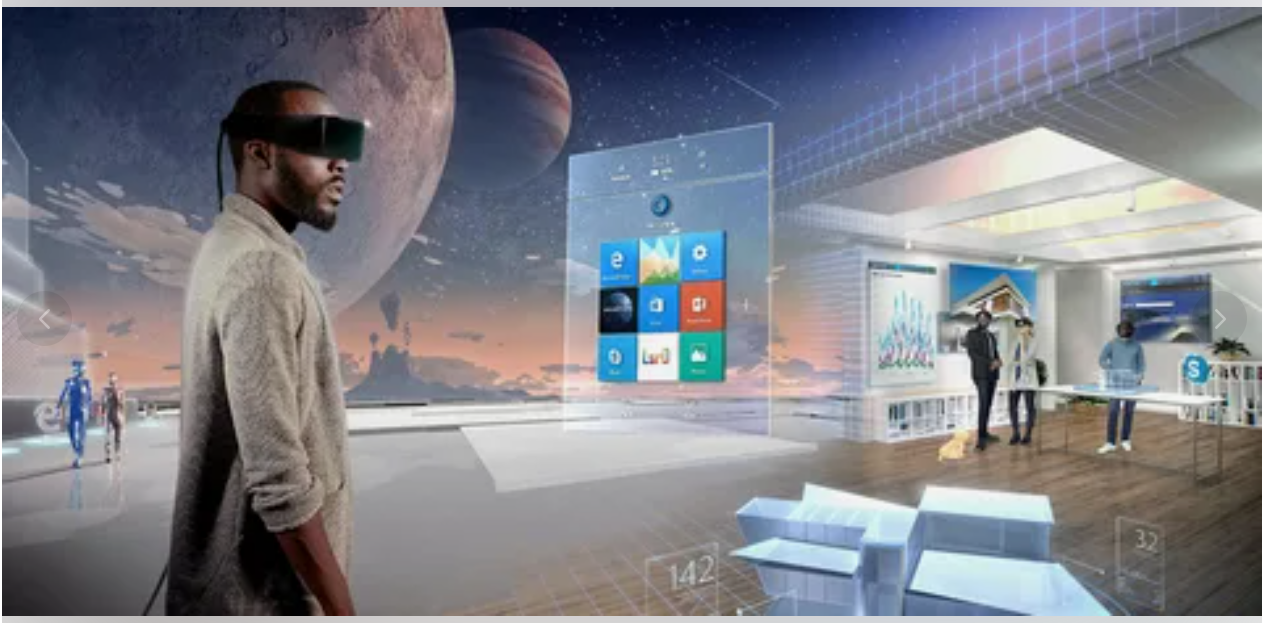The concept of the metaverse has captured the imagination of tech enthusiasts and futurists alike. A metaverse is a digital universe, a collective virtual shared space that encompasses everything from augmented reality to fully immersive virtual reality environments. While it may seem like science fiction, the metaverse is becoming a tangible reality, with profound implications for the global economy.
In 2023, the global metaverse market was valued at $22.19 billion, and it is expected to reach $418.44 billion by 2028. This growth is being driven by a number of factors, including the increasing popularity of virtual reality (VR) and augmented reality (AR), the rise of cloud gaming, and the development of new metaverse platforms.
In this article, we’ll explore the growing impact of metaverse 3d space development on the world economy, examining current trends, case studies, and statistics that paint a picture of this emerging digital frontier.
The Metaverse Revolution
Defining the Metaverse
The metaverse is more than just a playground for gamers; it’s a digital ecosystem that extends into education, commerce, entertainment, and social interaction. At its core, it’s about creating interconnected 3D spaces where people can interact, create, and exchange value in ways previously unimaginable, including the dynamic realm of 3D game development.
The Building Blocks
Several technologies are converging to make the metaverse a reality:
Virtual Reality (VR): Immersive headsets that transport users to digital realms.
Augmented Reality (AR): Overlaying digital information onto the physical world through devices like smartphones.
Blockchain: Providing secure and transparent transactions, digital ownership, and decentralized governance.
Artificial Intelligence (AI): Enabling realistic interactions and experiences within the metaverse.
The Metaverse’s Economic Impact
Here are some of the ways in which metaverse 3d space development are impacting the global economy:
1. Virtual Real Estate Boom
In the metaverse, virtual land is akin to real-world real estate. People and businesses are investing heavily in digital properties, leading to a virtual land rush. This trend has given rise to a thriving market where virtual parcels are bought and sold, often at substantial prices.
Decentraland, a blockchain-based virtual world, sold a virtual estate for over $900,000, setting a record for metaverse real estate transactions.
2. Digital Economy Flourishing
As the metaverse grows, so does its digital economy. People are creating and selling digital assets like virtual clothing, accessories, art, and more. This burgeoning digital marketplace has the potential to disrupt traditional industries and create new economic opportunities.
The global virtual goods market is expected to exceed $190 billion in 2024, reflecting the growing demand for digital assets within the metaverse.
3. Remote Work and Collaboration
The metaverse offers unique solutions for remote work and collaboration. Businesses are establishing virtual offices, enabling employees to meet, collaborate, and conduct business in immersive 3D spaces, regardless of their physical locations.
Spatial is a platform that transforms remote collaboration by providing a virtual workspace where users can interact as avatars, share documents, and conduct meetings.
4. Education and Training
The metaverse is revolutionizing education and training by providing immersive and interactive learning experiences. Educational institutions and businesses are exploring its potential for everything from classroom instruction to employee training programs.
ENGAGE is a virtual reality platform used for education and training, offering a wide range of virtual environments for immersive learning.
The Challenges and Considerations
While the metaverse holds immense promise, it also presents challenges and considerations:
1. Digital Divide
Access to the metaverse is not uniform, and the digital divide can exacerbate existing inequalities. Bridging this gap is essential to ensure that the metaverse’s benefits are accessible to all. According to the World Bank, as of 2023, around 35% of the global population still lacks internet access.
2. Privacy and Security
The metaverse raises concerns about privacy and security, especially when it comes to digital identity, data protection, and cybersecurity. Ensuring user safety and data integrity is paramount. Meta, formerly known as Facebook, has faced scrutiny over its data practices, highlighting the need for robust privacy measures in the metaverse.
3. Regulation and Governance
The metaverse operates across borders and is decentralized in many aspects. This presents regulatory challenges that governments and international bodies will need to address to ensure fair and safe interactions within the metaverse. According to a report by the World Economic Forum, 66% of industry experts believe that effective governance of the metaverse is a top priority.
The Metaverse and the Future
The metaverse represents a paradigm shift in how we interact with digital technology, conduct business, learn, and socialize. As it continues to evolve, its impact on the global economy will only intensify.
1. Economic Transformation
The metaverse is poised to reshape industries and create entirely new ones. Traditional economic models will adapt to accommodate the digital economy of the metaverse.
2. Job Creation
With the growth of the metaverse comes job opportunities in fields such as virtual architecture, 3D game development, virtual event planning, and digital asset management. A report by Deloitte suggests that the global metaverse market is expected to create 800,000 jobs by 2024.
3. Global Connectivity
The metaverse has the potential to connect people from all corners of the globe, fostering cross-cultural interactions and collaborations that were once unimaginable.
Also Read : What is AUZ100X? Unleashing the Future of Technology
Final Words
The metaverse and its 3D spaces are not just the playgrounds of the future; they are already shaping the global economy. The metaverse is still in its early stages of development, but it is already having a significant impact on the global economy.
As the metaverse continues to expand, it is imperative that we address the challenges of accessibility, privacy, and governance to ensure that it serves as a force for positive economic transformation. The metaverse’s potential is vast, and its journey has only just begun, promising a future where physical and digital worlds coexist and thrive.
